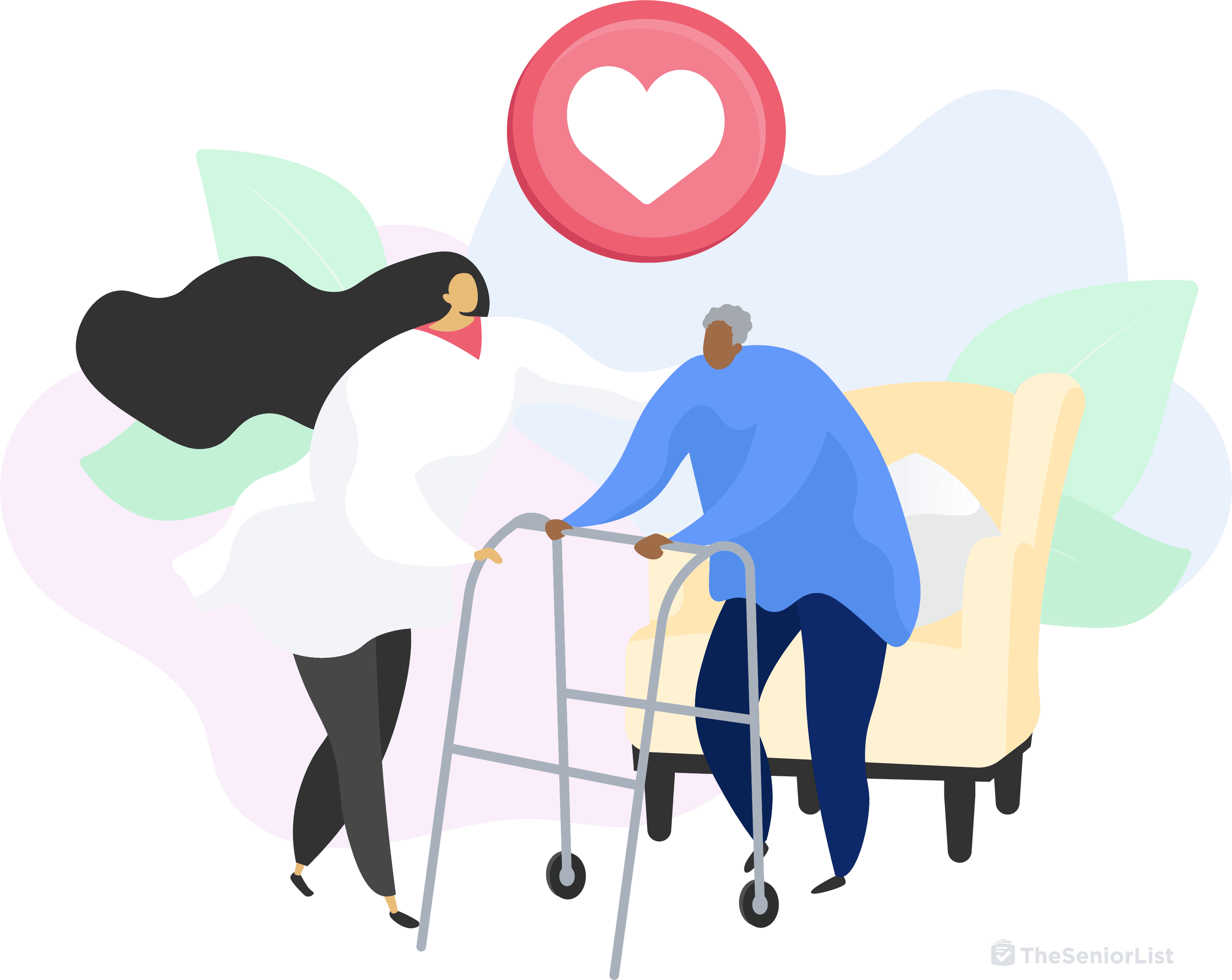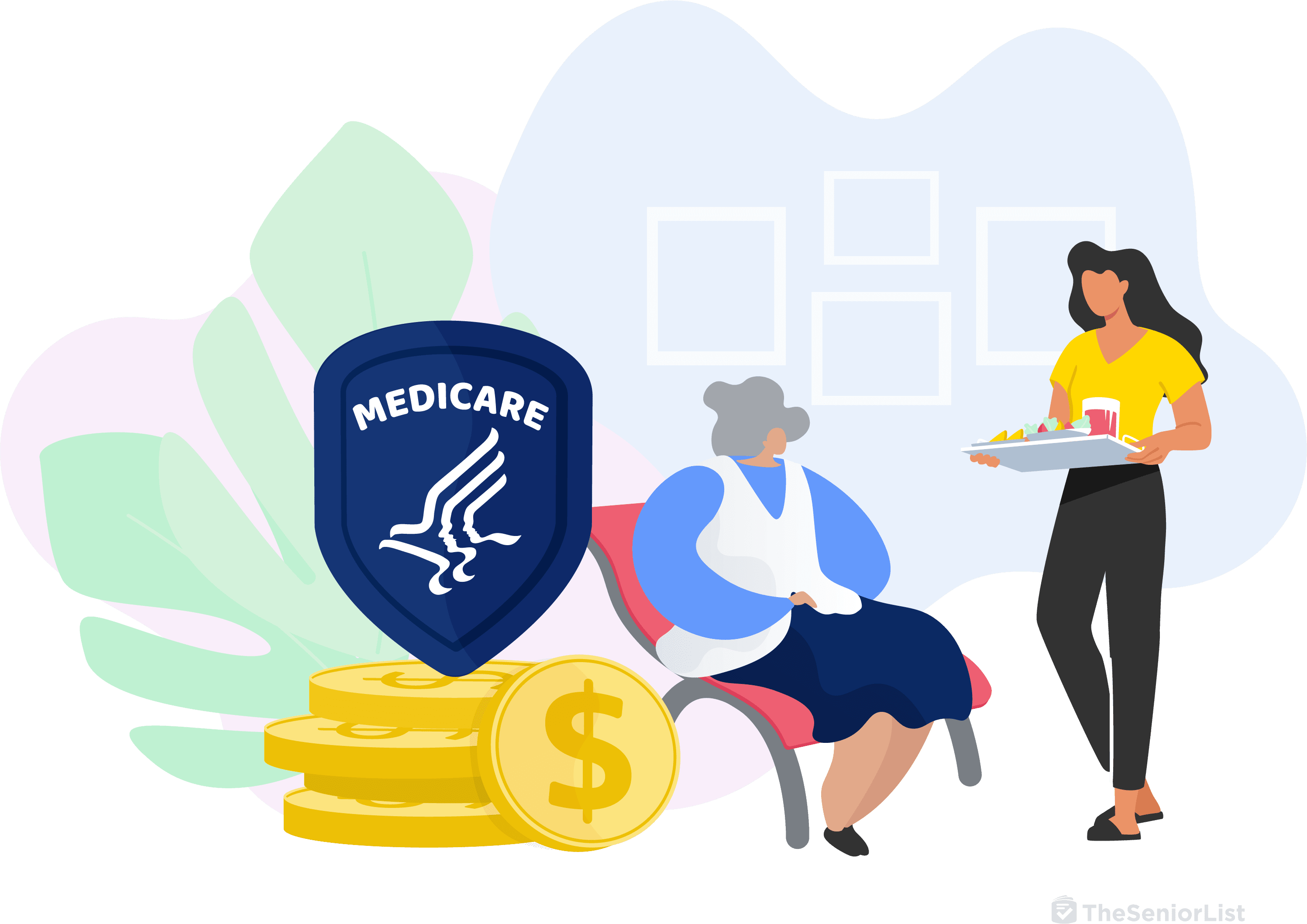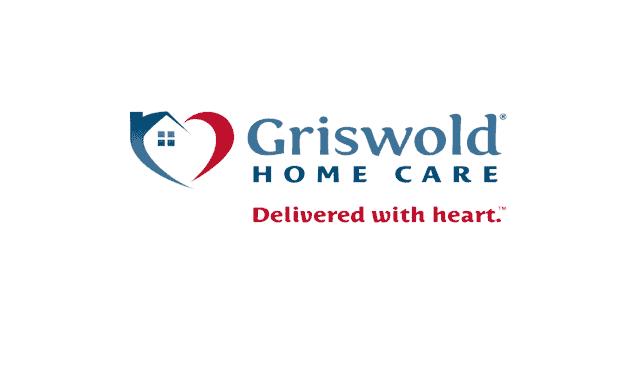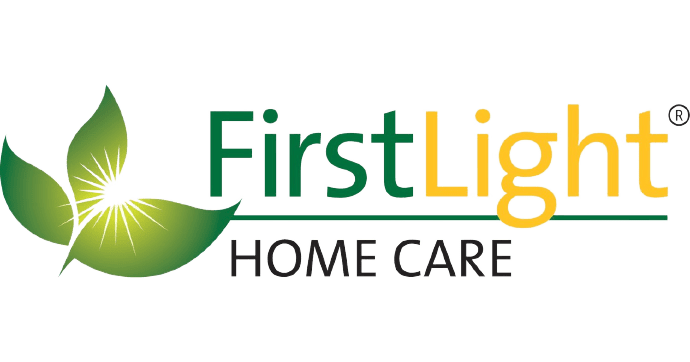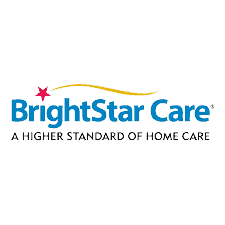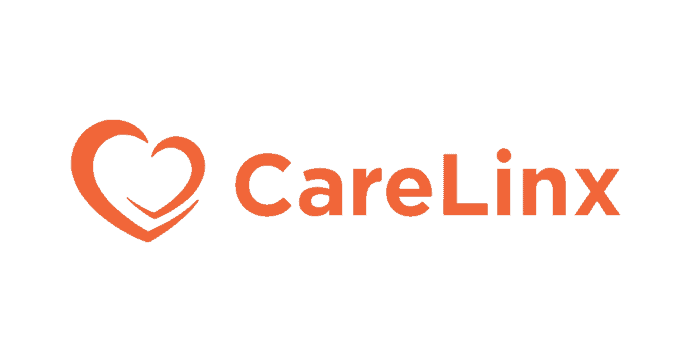2026 Guide to Home Care for Seniors
What Is Home Care?
Broadly speaking, home care is the process of receiving caregiving services at home. In the context of older adults, this type of care allows a person to age in place rather than transition to a senior care community such as assisted living.
Home care can generally be broken down into three different categories:
- Non-medical home care: Often administered by a family member or paid caregiver, non-medical home care provides assistance with activities of daily living, such as household chores, meal preparation and bathing.
- Nursing care: Administered by an RN (registered nurse), LPN (licensed practicing nurse), or CNA (certified nursing assistant), nursing care may provide assistance with ADLs in addition to more specialized medical care such as medication administration, vital signs monitoring, or ongoing treatment of chronic conditions.
- Home health care: Prescribed by a doctor, home health care tends to focus on short-term issues like strokes or injuries. While this care type will likely include nurses, it may also include rehabilitation-focused speech therapists, occupational therapists, and physical therapists.
Types of Home Care Compared
| Non-Medical Home Care | Nursing Care | Home Health Care | |
|---|---|---|---|
| Administered By |
|
|
|
| Potential Services |
|
|
|
| Costs* | $26 per hour | $27 per hour | N/A |
| Payment Options |
|
|
|
*Costs reflect a national average derived from Genworth’s Cost of Care survey.
Who Should Consider Home Care?
In most cases, people want to remain in their homes for as long as possible; however, home care is not necessarily the best option for everyone.
Home care is ideal for
- Those who need assistance with mobility, bathing, toileting, or household tasks.
- Those who need companionship or company.
- Those who need assistance with light household tasks (ex: cooking and cleaning).
- Those who need transportation to appointments or errands.
Home care is not ideal for
- Those who need regular, ongoing medical care.
- Those who want the company of peers rather than caregiving professionals.
- Those with advanced memory impairment.
How to Plan Home Care
The first step to planning home care will be to determine the needs of your loved one. If a person only needs assistance with one or more ADLs, then non-medical care might be the best option. Alternatively, if a person has ALS and requires a complex regimen of medications, then nursing care might be required.
The Role of Family Caregivers
In many cases, family members can provide some or all of the required non-medical home care needs. Unlike nursing care, the skills required to assist with ADLs can be learned quickly, allowing spouses, children, and other loved ones to provide assistance as needed.
However, it’s important to remember that caregiving is not easy work. Between full-time jobs and other obligations, providing care may become difficult or even impossible. That’s why, in addition to employing the help of family members, many supplement their care with that of paid professionals.
Pro Tip: If you’re experiencing caregiver burnout, you can find temporary relief through respite care.
Finding Home Care
For non-medical home care, there are generally two approaches: finding a private-duty caregiver or contacting a home care agency.
Private-Duty Care
Finding a private-duty caregiver essentially means you’ll be launching your own search for care. Whether through Facebook, word of mouth, or an online service like CareLinx, finding your own private caregiver is generally the more affordable and flexible option. The downside of this option is that it requires more work. Screening, selecting, and scheduling a caregiver will all fall on you.
Home Care Agencies
Alternatively, a home care agency will perform all of this work for you. By contacting a local home care agency like Visiting Angels, they’ll perform an in-home assessment, match your loved one with a caregiver(s), and handle all issues related to screening, scheduling, and caregiver replacement (in the event that your caregiver falls ill or can’t make a scheduled appointment).
Many home care agencies also can provide nursing services and even home health care. For example, Bayada Home Health offers personal care as well as nursing and even Medicare-certified home health care services.
The one downside of home care agencies is the higher costs. Generally costing $26 per hour (though varying widely by location), home care agencies also generally require weekly or daily minimum commitments for care. For example, Home Instead requires that all care visits must last at least four hours, and you must also book a minimum of 12 hours per week.
Companion Caregivers
For those in need of purely companionship –– that is, not assistance with ADLs –– a new app-based option called Papa can help you find it. By using the Papa app, you can book companion care for yourself or a loved one for highly affordable prices. That said, the services of Papa are relegated to companionship, light household chores, and other non-skilled assistance. Personal care assistance requires some degree of training to perform safely.
The Costs of Home Care
While the quality of care and its effect on your loved one should be your utmost concern, you’ll also have to consider the financial aspects of home care. While the costs of home care vary widely by location and the type of care, you can most likely expect to pay $26-$27 per hour.
As a general rule of thumb, the more advanced a care service, the more it will cost. For example, a companion caregiver often costs only $15 per hour, while total assistance with ADLs can easily cost upwards of $40 per hour.
Paying for Home Care
Compared to senior care communities, home care can potentially be an affordable option. That said, the costs can quickly rack up. In addition to using your savings, here are some ways to pay for home care.
- Long-term care insurance: While long-term care insurance is most commonly used for senior care communities or home health care, some policies will cover home caregiving services.
- Aid and Attendance Benefit: While the VA Aid and Attendance Benefit does not explicitly cover home care, qualifying veterans and their families may qualify for this added bonus on their monthly pension.
- Life insurance: While life insurance primarily benefits a family after their loved one’s death, some policies may be used to pay for long-term care, including home care.
- Reverse mortgage: Those over the age of 62 can take out a reverse mortgage on a part or the entirety of their home, providing them with liquid assets that can go toward home care.
To learn more about our favorite life insurance providers, check out our guide to the best life insurance for seniors.
Does Medicare Cover Home Care?
As of 2022, Medicare does not pay for home care. The agency considers this long-term or “custodial” care, which includes assistance with ADLs, along with health-related care that individuals typically do by themselves, such as putting in eye drops or administering medication.
That said, Medicare sometimes pays for short-term caregivers when the recipient also needs medical care as part of their recovery from an injury, illness or surgery. For coverage to be honored, the recipient must be homebound and all services must be prescribed by a medical doctor.
Does Medicaid Cover Home Care?
Medicaid-covered services sometimes vary from one state to another. Make sure that you check whether Medicaid pays for senior home care in the state where you or your senior loved one resides. If Medicaid covers senior home care, it typically provides only limited coverage.
Is In-Home Care Tax Deductible?
As a loved one paying for a caregiver or a family member caring for an older adult on your own, you have a number of tax breaks available to you. Here are a couple I’ve learned about during my years as a professional caregiver.
- Child and Dependent Care Credit
- With this credit, If you pay for your loved one’s care expenses, you can claim up to $3,000 per person up to two dependents.
- Flexible Spending Dependent Care Accounts
- When it’s time to sign up for open enrollment for your health care plan at work, determine whether your employer offers dependent flexible spend accounts. If they do, sign up! Estimate how much you expect to spend on your loved one’s care that year. If it’s less than $5,000, you can agree to have that amount removed from your paycheck prior to tax. If you set aside the maximum $5,000 per year, you’ll end up saving about $2,000 annually. Many FSA balances don’t roll over from year to year, so be careful not to overestimate.
While tax breaks exist, many involve strict eligibility rules. If you’re looking to save more money from the amount you’re spending for your loved one’s care, your best bet is to speak with an accountant about your specific circumstances and financial situation. If you’re 60 or older, you may be able to get free assistance with preparing your taxes.
With Care.com, you can find trusted, local caregivers.

How to Get Paid to Be a Caregiver for Parents
If you’d prefer to care for your parents on your own but can’t afford to give up your income to do so, you’re not alone. Numerous studies have brought to light the financial strain family caregivers commonly experience. Fortunately, you may still be able to care for your parents as a full- or part-time paid caregiver. A range of resources exist for people who want to do just that.
Government Programs
These three programs are among the most popular. Keep in mind, the majority of these programs require that your parent(s) be 65 or older and need help with a minimum number of daily activities. They also have requirements based on their income and/or veteran status.
- Medicaid Home and Community-Based Services
If your parent is eligible for home- and community-based services programs, you can choose to join one. When you do so, you receive benefits like ongoing support and a tax-free daily stipend. - Medicaid’s Cash and Counseling
If your parent is eligible, they can receive cash assistance. Since this assistance is considered self-directed, this money can be spent however they wish. You could set this up as your parent’s way to pay you as their caregiver. - Veteran Aid and Attendance Pension
Determine if your parent qualifies for the Aid & Attendance pension, which can provide additional monthly income over and above the Basic Monthly pension. Those who meet the requirements for this aid receive approximately $2,300 per month to help cover senior home care expenses. - Veteran-Directed Care
Similar to Medicaid Cash and Counseling, Veteran-Directed Care provides eligible veterans funding to cover caregiving expenses but lets the older adult decide exactly how that money will be allocated. Therefore, your veteran parent could use this benefit to pay you as their caregiver.
Since Medicaid eligibility and programs change by state, look for programs offered under Long-Term Care Supports and Services (LTSS); Programs may be similar from state to state but titles vary.
Recap
In-home care provides a more budget-friendly solution to senior care than nursing homes and most other senior housing options. At just over half the cost of a full-time nursing home, savings are evident, but an annual price tag of $51,000 is still a daunting prospect for the average American. Fortunately, government and nonprofit senior programs, plus caregiving-related tax credits, can help make in-home care a cost-effective caregiving solution for seniors and their families.
To learn more about home care, be sure to check out our helpful guides:
- Comfort Keepers Review
- Right at Home Review
- TheKey Review (formerly Home Care Assistance)
- Firstlight Home Care Review
- Amada Senior Care Review
- Griswold Home Care Review
- Homewatch CareGivers Review
- Always Best Home Care Review
- Home Helpers Review
- Seniors Helping Seniors Review
- Granny Nannies Review
- Advanced Home Care Review
- Brightstar Care Review


